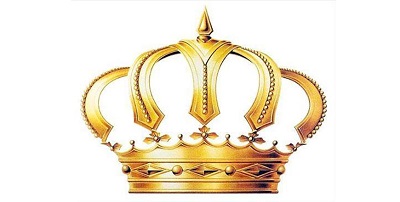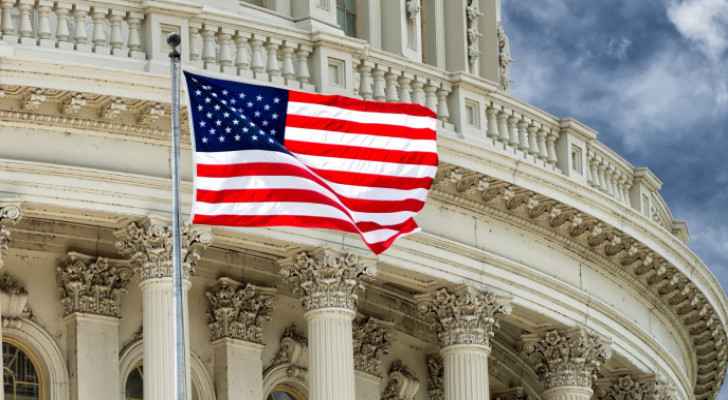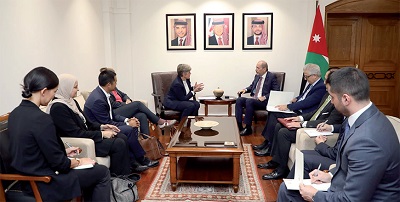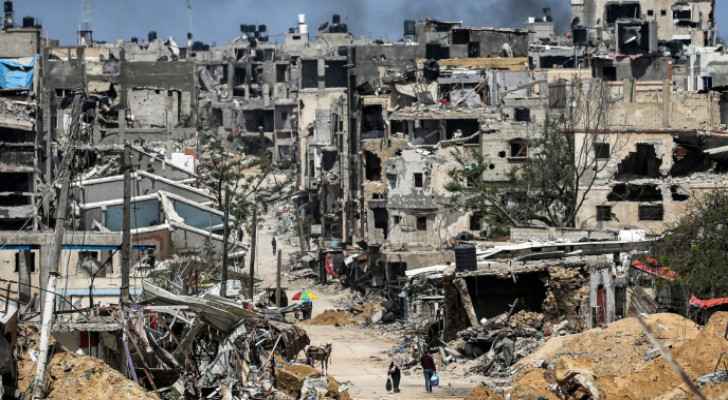Who is Fiddling with Whom: Us or COVID-19? - By Eyad Abu Shakra, Asharq Al-Awsat
As COVID-19 pandemic threatens the whole world, unrelated confrontations are being waged with scant regard to the common efforts and accelerated research aimed at finding vaccines and treatments. Indeed, as if human suffering is not enough, and economic collapse is debatable, there are some who want to go along the path of the blame game, sowing doubts and cover-up attempts here and there.
Personally, I believe that the final say must be left to scientists, because politicians and economic and financial pressure groups have dominated the arena long enough, and gained undeserved influence. Thus, until we see the end of this pandemic, it is time they leave this arena and allow the people of science and conscience to take over.
Today, while politicians talk, outbid each other and try to hide their mistakes and negligence, scientists and physicians from all over the world are diligently and silently working in their labs and hospitals to save the lives of millions.
Mass graves in New York are beyond comments, as are surrealistic the scenes of a deserted Champs-Elysees in Paris and the deafening silence of London as it lives under a depressing curfew. In the east as in the west, and in Asia as in Africa and the Americas, there is no discrimination before the sweeping pandemic.
Losses in every sector in all industrialized countries have reached billions of US dollars, equaled almost only by the relief aid and compensations. This is all happening as more and more questions are being asked about how long the world will endure lockdowns, the long-term probable repercussions and how societies are going to emerge after this difficult human experience.
What I mean to say is that the pandemic-created crisis is far more serious than reciprocated spitefulness and point-scoring; and let’s begin where the pandemic originated: China.
I am the last to regard the Chinese regime as an ideal global model of governance. Whether, looking at China’s size, the nature of its society, political thought or value system, I do not believe its regime can be attractive to those who value individual freedoms, human rights and political diversity. On the issue of transparency, in particular, I can easily understand why many continuously doubt the official Chinese figures of COVID-19 cases, fatalities and recoveries. I am also familiar with the negativities of coercion which is one of the common features of many oriental, as well as western societies.
Furthermore, I am well aware that significant part of “communist” China’s political identity is the transformation from a rural to a sophisticated militaristic-totalitarian society that regards most of the principles of western democracy alien and totally unrelated to Chinese heritage.
However, this giant of a nation, now emerging from a long hibernation, seems to be in a hurry to play a long overdue and deserved global role. Yet, here one has to say that those who still regard China and Russia as the supporters of the underdogs in the world, and only act according to socialist ideals must look again. Consider the vetoes by both countries at the UN Security Council throughout the Syrian tragedy since 2011. True, Russia has been in the forefront, but China was working in unison with the Russians in backing the Assad regime against the uprising of the Syrian people. The same can be said about the support both Beijing and Moscow have been giving to the theocratic and despotic Iranian regime, while claiming that they were leading the fight against terrorism and religious extremism.
On the other hand, I do appreciate that China’s ascendency is worrying to its competitors among world powers. This means that, within the context of competition for global influence, “friendships” become a flimsy tactical expression whose “truth” varies from one place to another.
Russia and China have many common interests in several world regions against a common enemy: America. But also, the Americans and Russians have common goals and interests against the Chinese in others regions and fields.
Thus, the “Big three” are not really “allies”, but rather competitors in varying degrees based on national interests. A good example would be how President Donald Trump has been hammering home his message that “China, not Russia, poses the greatest threat to America”, even during the thick of the Democrats’ accusations that Russia had interfered in the US election to ensure his victory.
Trump, who practices politics like a speculator in a continuous election campaign, is now fighting a direct “war” against China. In this “war”, he is backed by a broad spectrum of rightwing parties, groups, politicians and media; more so, he intensified his rhetoric during an election year in which COVID-19 may prove to be a highly influential factor.
To begin with, Trump called COVID-19 “the Chinese epidemic”, although no body – as far as I recall – had ever called AIDS “the American virus” or the “African virus”.
Secondly, the US president has started a fight against the director general of WHO (the World Health Organization). Trump is now accusing him of being pro-China, and colluding with the Chinese in their “suppression of early information” about COVID-19. However, while it may be true that the WHO’s boss - a former African foreign minister – has his well-known political conviction, he remains a director of an international organization that includes senior officials and experts from all over the world. Moreover, one of the director general’s top advisors and assistants is a prominent American public health expert.
Thirdly, it is true that China was one month late in informing the international community of the discovery of the COVID-19 last December; noting that by then even the Chinese did not know much about its nature. But it is also true, that the countries of Western Europe and the US knew enough about the virus since last January, but took the matter lightly and did not impose distancing and lockdowns except when thing got out of hand. As for Trump, he would not have acted had it not for the escalating number of cases and fatalities, and the courage of some of his publicly dissenting advisors, like Dr. Anthony Fauci.
Finally, in these dire times, what the world badly needs now is unity, solidarity and goodwill. It also has to keep international cooperation and international organizations far from the whims of political populism. This means keeping WHO outside the blame game is more than vital, as the world braces itself for the virus spreading further into large, poor and densely populated areas of the world.
It is more than enough to boycott the UNESCO, ignore the UN Security Council’s resolutions, and overuse the veto; so there is no need to turn the killer pandemic too into a political toy.
The peoples of the world, after this pandemic, badly need to be surrounded by more fairness, more sympathy, more truthfulness and more humanity.
Latest News
 King orders holding parliamentary elections in accordance with law, checks on electoral commission’s preparations
King orders holding parliamentary elections in accordance with law, checks on electoral commission’s preparations- N. Macedonia starts elections that could decide stalled EU talks
 US Senate passes bill for aid to Israeli Occupation, Ukraine, Taiwan
US Senate passes bill for aid to Israeli Occupation, Ukraine, Taiwan Safadi discusses support to Syrian refugee with DRC
Safadi discusses support to Syrian refugee with DRC Israeli Occupation aggression on Gaza enters 200th day
Israeli Occupation aggression on Gaza enters 200th day
Most Read Articles
- Safadi discusses support to Syrian refugee with DRC
- Israeli Occupation aggression on Gaza enters 200th day
- King, Kuwait emir reaffirm pride in deep-rooted relations
- Kuwait channels $24 billion in development assistance to Jordan in 24 years
- UNRWA’s role in Gaza indispensable — Foreign Ministry
- Jordan condemns Israeli 'war crimes' in Gaza, calls for accountability
- King orders holding parliamentary elections in accordance with law, checks on electoral commission’s preparations
- Jordan outperforms MENA average in women, business, law indicators — report
- General Motors lifts 2024 profit forecast after strong Q1
- Baby delivered from dying mother's womb in Gaza 'miracle'